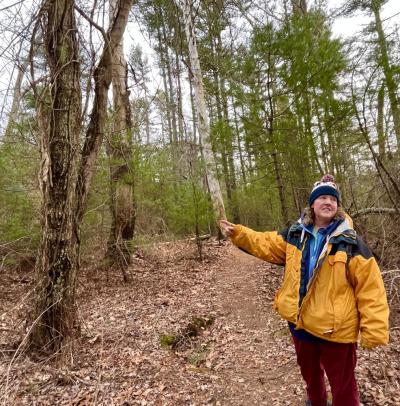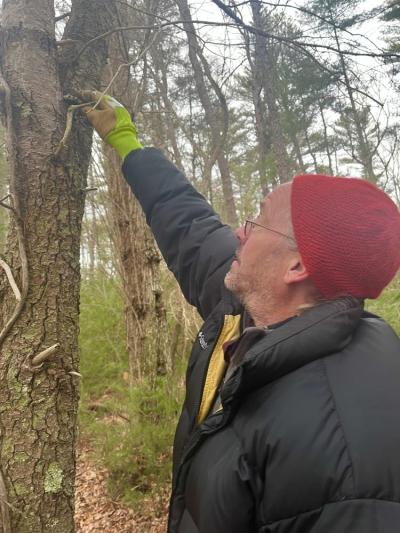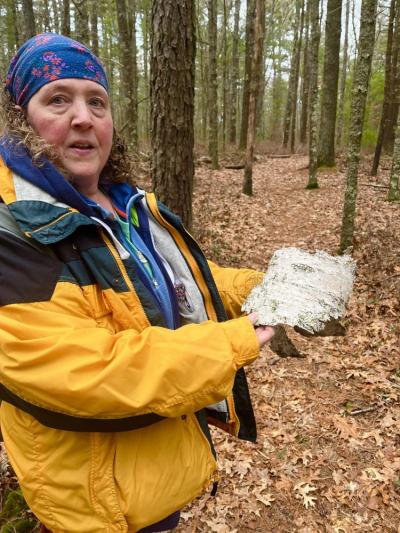Daylight saving hikers say the sun should set on clock turning
Looking up at the tall, dead trees that towered above her, Dawn Jackson only had one thing to say.
“Holy crap!” She exclaimed. “Look at that tree! How long do you think it has left?”
Jackson and a handful of other hikers came to Horseshoe Mill on the evening of Sunday, March 12 to celebrate the beginning of daylight saving time. They were so enamored with the beauty of the sunlit trail that they weren’t even bothered by losing an hour of sleep.
“Nature gets more sunlight,” Jackson said, “and I get to enjoy more sunlight. Symbiotic relationship.”
The hike was sponsored by the Buzzards Bay Coalition.
“The trees are so tall!” Said Valerie Murolo, a first-time visitor to Horseshoe Mill. “Oh, I love it… The air smells so pure.”
Murolo’s girlfriend Kathy Langford convinced her to go on Sunday’s hike.
“I was excited that we were going to have more daylight,” Langford said, “which meant we were going into spring.”
Both Murolo and Langford said that the government should keep daylight saving time year round, allowing them to enjoy the extra hour of daylight and not worry about falling back or springing forward.
“I don’t see the need to continue it,” Murolo said. “I don’t like the disruption. If they kept it at this time, I would love it, because it stays lighter longer.”
The history of daylight saving time in America is almost as old as the country itself. Benjamin Franklin proposed the idea in 1794, but it was not practiced until it became an energy-saving measure during World War I and World War II. After that, the issue of daylight saving time was left to the states until 1966, when President Lyndon B. Johnson signed the Uniform Time Act.
“I wish the time would stay the same all the time,” said Susan Donohoe. “It’s confusing to me, having the clocks change.”
As the light between the trees grew fainter, Jackson collected scraps of birch bark, which she plans to paint on.
“You can put them in a frame,” she said. “It’s unique.”
Joe Burroughs scraped resin off of a pine tree (it makes a good fire starter, just in case) and pointed out invasive species, such as the autumn olive. It takes up the space of native plants, but its berries are delicious.
“If you’re eating them, don’t spit out the seeds as you walk,” he said. “That just spreads them around.”
Burroughs also disagrees with daylight saving time.
“It’s unnatural,” he said. “It’s supposed to be the seasons changing, rather than changing the seasons to suit us.”

















